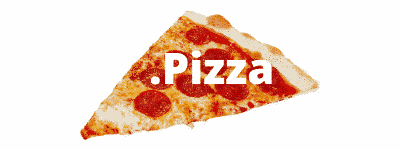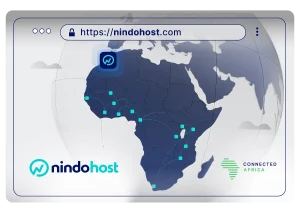Have you heard of domain hacking? Don't worry; it has nothing to do with hacking websites, even though the term might remind you of hackers!
The term "hacking" here doesn't refer to cyberattacks. There's another field called "life hacking," an expression used by English speakers to describe various tips and tricks that make life easier.
Still not clear? Well, domain hacking involves using creative techniques to craft domain names that sound good and have an attractive spelling.
What is domain hacking?
Also known as domain name hacking, it's a set of techniques that help us obtain interesting results when creating new domain names. The address: http://bir.ds/ (where the .ds doesn't represent any country, just an example!) suggests the word "birds."
Matthew Doucette, co-founder of Xona Games, coined the term "domain hack" in 2004 to describe a "non-conventional domain name that utilizes parts other than the SLD (second-level domain) and third-level domain (www) to create the title of the domain name.".
Domain hacking: useful when the .com is scarce!
These days, it's getting harder and harder to find a good .com domain name that's still available. Practically all domain names containing less than 5 letters are already reserved, actually in use or parked.
We all know that the .com extension is the most sought-after by website owners because it is indeed the most popular.
What should we do when we can't find the desired .com domain name?
One thing is certain: it's not (yet) the end of the world. There are plenty of methods for viable alternatives, including domain hacking.
So, if cinema.com, ultima.com, and drama.com are already taken, some clever folks have managed to find: cine.ma, ulti.ma and dra.ma. instead! Haven't you noticed yet?
The .ma, which is a ccTLD (Country Code Domain Name), typically refers to Morocco. However, there's nothing to prevent anyone from using it to compose a word ending in "ma." The list is quite long, we assure you.
Famous examples of domain hacks
According to Wikipedia, the first website name resulting from domain hacking technique is inter.net, registered on November 23, 1992. The .net, being a generic domain extension (dTLD), offers a limited choice in terms of word creation. ccTLDs, or geolocated domain names, now provide more possibilities for word concatenation.
Domain hacking via ccTLDs (country domains)
This is how several country domain extensions have been "hijacked" to compose shorter and more attractive domain names. Here is a non-exhaustive list:
- LinkedIn: LNKD.IN (the country code domain for India)
- Playstation: PLAY.ST (São Tomé and Príncipe domain)
- Xbox Live : XBX.LV (Latvia's domain)
- Adidas : A.DID.AS (American Somoa domain)
- Spotify: SPOTI.FI (Finland's domain)
- Google : GOO.GL (Greenland domain)
- Youtube : YOUTU.BE (Belgium domain)
- Apple Itunes: ITUN.ES (Spanish domain)
- National Public Radio: N.PR (Puerto Rico domain)
- Instagram: INSTAGR.AM (Armenia domain)
- Bitly : BIT.LY (domain of Libya)
Most of these new domain names from domain hacking serve large brands for their link shortening platforms (Link Shorteners): it's very useful and more convenient for sharing short links on social networks.
Other ccTLDs have spellings that have earned them significant notoriety because they are related to specific themes:
- For example, the .TV extension (Tuvalu domain) is widely used by television channels worldwide.
- The .DJ (Djibouti domain) and .CD (Democratic Republic of the Congo domain) extensions are more music-oriented.
- The .AM (Armenia) and .FM (Micronesia) extensions are associated with radio.
Special Note on the .IO extension:
Lately, most online application (SaaS) sites, certain video games, and tech startups have adopted the .IO extension (British Indian Ocean Territory domain) on a large scale. The reason is that the IO spelling resembles the abbreviation for input/output (I/O) known among computer developers.

Domain hacking via gTLDs (new generic domain names)
In addition to generic domain name extensions and extensions related to different countries on the planet, we find an entirely new category of extensions: nTLDs (New Top Level Domains).
More specific, these extensions allow for quite ingenious and often appealing domain names. The list is very long, but we mention a few examples:
- .tech
- .space
- .actor
- .yoga
- .art
- .app
- .love
- .shop
- .baby
- .coffee
- .tennis
- .pizza
- .toys
- .photography
If you're interested in creating domain names based on a variety of creative extensions, we've got just what you're looking for! At Nindohost, you'll have access to over 150 extensions for a wide range of business sectors.
You'll notice that, with some creative effort, you could obtain attractive addresses for your future websites. Let's try together:
- TheOuter.space
- Iaman.actor
- 7th.art
- Whats.app
- Hot.pizza
- Ilove.photography
- ...
As these extensions are not very popular, you'll still need to make an effort to promote them through advertising.
Critiques of domain hacking
According to some people, using domain hacking could weaken the usefulness of country-code TLDs. With this creative technique, it becomes more challenging to judge a website's country of origin by merely looking at the TLD.
Breaking down a domain name into subdomains and/or URL pathnames often makes the actual domain name insignificant and goes against good naming conventions.
Moreover, some domain hack addresses are difficult to memorize until you become familiar with them, such as del.icio.us. A common typo is to place the dots in the wrong place. (For your information: to counter this, del.icio.us also registered the domain names www.delicious.com and delicio.us, which redirect to their site).
What does Nindohost recommend about domain hacking?
Well, we're never against a bit of creativity.



